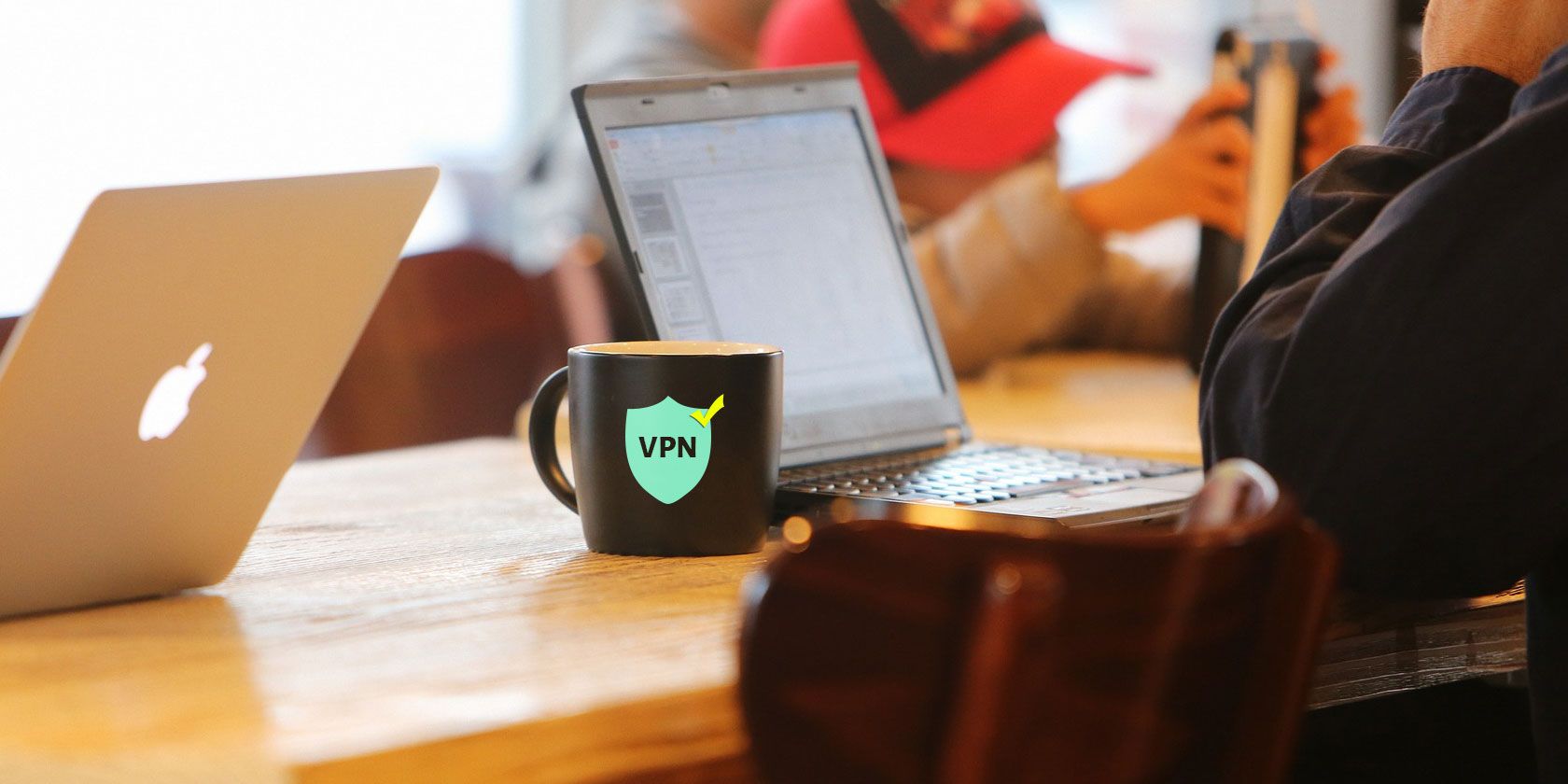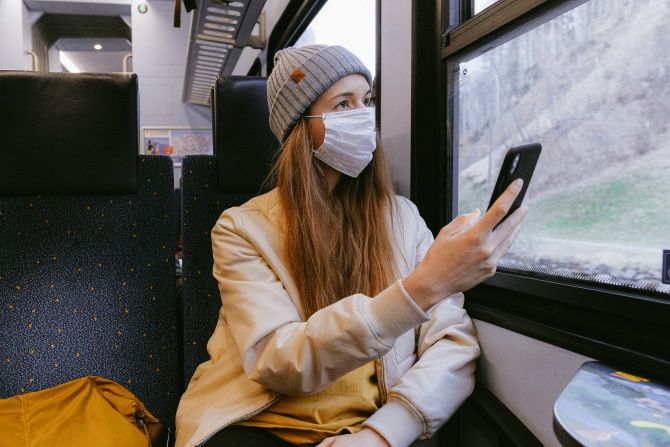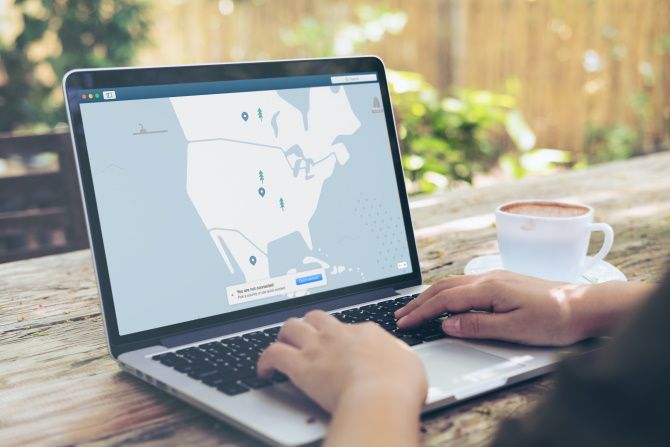
You’ve heard about virtual private networks, and probably read somewhere that they’re great for improving security and privacy. But for some reason, you’re not using a VPN. After all, your time is taken up with work.
You don’t have time for Netflix, social networking, online gaming, or any other activity that benefits from using a VPN.
As it turns out, there are many more reasons for using a VPN, especially if you work from home.
How Does a VPN Work?
Despite VPN usage rocketing, there remains some mystery around how VPNs work.
Think of it as a secure tunnel between two online locations (perhaps your home and work, or your favorite website). No one on the outside can see what you’re doing in this secret tunnel. Various security and privacy benefits come with using a VPN. In some cases they can improve your internet speed too, by circumventing your ISP’s data prioritization.
Two types of VPN are available:
- Access to a single VPN server (perhaps provided by your employer)
- Connecting to the internet via a third-party VPN subscription service
While similar, they have slightly different uses. Our complete guide to how VPNs work explains this further.
Here are five reasons why anyone working remotely should be using a VPN.
Using a Work VPN? Follow Your Company’s IT Policy!
Working remotely? If you’re accessing your organization’s network or using hardware provided by your employer, ensure you’re adhering to the IT policy. As you’ve probably already signed your agreement to this, it shouldn’t be too difficult. Just make sure you use the equipment as you would in the office: for work purposes.
It’s also worth pointing out that the policy may exclude you from working from your favorite café or brasserie. Regardless of whether you have a VPN running on your computer, this could be a big no-no, so tread carefully. Contact your IT department for advice here.
Working from home during a precautionary lockdown? Check you have the latest version of the IT policy as it may have been updated to reflect recent events.
1. A Secure VPN Is Vital During Pandemics
Social lockdown to combat the effects of a pandemic has been proven to seriously impact working practices. While there are various solutions to this, for office workers a key weapon is a VPN.
Remote working is a security risk in many ways, not least in giving cybercriminals new avenues for attack. Hackers can intercept unencrypted connections, for example. Passwords can be sniffed, stolen, and used, and sensitive data stolen.
With a connection to your employer’s network secured by a VPN, you can work with confidence. Encrypted connections cannot be sniffed. Your password remains safe.
Ideally this VPN would be provided by your employer. If no VPN provision has been made, reach out to your IT colleagues. While it’s possible you’ll be refused, it would be short-sighted.
Freelancer or virtual assistant? Perhaps there is a collaborative portal you use. Your vital files might be stored in the cloud. Or you might be concerned about the security of VOIP calls.
You can still use a VPN here. Simply subscribe to a top VPN service, like ExpressVPN, and go from there.
2. Home VPNs Are Cheaper Than Commuting
Incredibly, staying at home and using a VPN to connect to your corporate network is cheaper than commuting. It doesn’t matter if it’s a health emergency or some other reason for prolonged home working.
Even when you consider the electricity costs and the VPN subscription, it’s still cheaper. If your IT department has configured a VPN from your computer direct to your workplace, even better!
You wake up, burn your hand on the cafetière, fall into your car with your tie on wrong, or your makeup still to do. Nothing goes right. And then you realize you’re short on gas, which means a stop on the way to the office. Then you get caught in traffic, making you late. And you forgot to sort out your tie/makeup.
It’s horrible. Really, if you can avoid living like that, you should.
If working from home is an option, you can keep your data private and secure using a VPN. Your current work projects are protected from hackers by the VPN’s encryption. All for a few dollars a month.
3. Productivity Is Increased With VPN Privacy Software
Working from home, or at a table in your favorite café, or even in a hot-desking workspace is great. You’re swapping the water cooler for a cat and a coffee machine. If you have the determination and discipline to work rather than play, you should experience a marked increase in productivity.
Is it really that easy? Well, it takes some effort to get in the zone. But one thing you don’t want is to be worrying about the security and privacy of your connection. That sort of distraction will reduce productivity, not increase it.
Simply enabling your VPN client can help immeasurably.
4. Remote Access Your Work PC With a Secure VPN
While reading this, you’re probably wondering “how am I going to connect to my work PC?” It’s quite simple. Using remote access software you can establish a remote connection with your work desktop.
Several options are available here, from SSH to VNC and the most popular, RDP (Remote Desktop Protocol).
All you need to do is ensure your work computer is switched on, which a colleague can do for you. If your organization’s IT policy permits VPN access and it is enabled, you should be able to connect.
Again, a private work-arranged VPN will be required here.
5. A VPN Protects You on Public Wi-Fi
One of the greatest things about working as a freelancer is that you can work anywhere. Cafés are popular, but you may prefer transport hubs, shopping malls, or other places with free Wi-Fi.
If you don’t have Wi-Fi at home, free wireless access might be the only chance you have of getting online for remote work.
But is free Wi-Fi safe?
Over the years, various threats dwelling in free Wi-Fi hotspots have been uncovered. Wi-Fi sniffer software installed on laptops, tablets, and smartphones can detect and capture unencrypted data. Fake wireless networks posing as real record everything you do while connected.
You probably don’t fancy losing your username and password to a stranger sat nearby.
But actually, it doesn’t matter if the Wi-Fi is free or paid. If it isn’t yours and you don’t have control over it, you shouldn’t connect without a VPN. Simply subscribe to a VPN and install the app on your laptop, tablet, or mobile to protect your data.
Which VPN Should You Use?
Many VPN services are available to subscribe to. However, they differ in quality, reliability, and privacy policy.
So, how do you make the right choice? Well, you need to look for a service that is highly regarded, fast, and with enough servers to ensure reliability. But you also need a VPN that has a clear no-logging policy.
Netflix support is irrelevant for work, but you might need torrent access. Many organizations rely on peer-to-peer (P2P) networking to transfer data. Microsoft distributes updates using P2P too, making it additionally important to have.
Further, you’ll need a VPN that is affordable. If encrypted VPN tunneling isn’t provided by your employer to its network, they may be persuaded to cough up. Otherwise, consider paying for a VPN over a longer period (such as six months) to gain a discount.
Free VPNs are available, but while a handful are good, most are designed to farm your personal data. They’re best avoided.
Want a suggestion for a VPN? We have a reader exclusive: Get 49% off on our top recommended VPN, ExpressVPN.
Working From Home? You Need a VPN
Whether you’re in lockdown, need a few days to work from home, or freelance full-time, you need a VPN.
Freelancers and virtual assistants can take their pick from a range of great VPN services. If you’re employed, meanwhile, your employer should be able to provide you with a VPN connection to the network. You might even get a remote connection to your work PC!
Read the full article: 5 Reasons Why Home and Remote Workers Should Use a VPN
from MakeUseOf https://ift.tt/2lz2EhR
via IFTTT



0 comments: